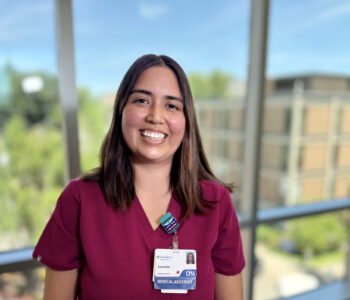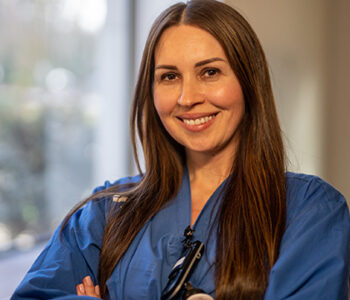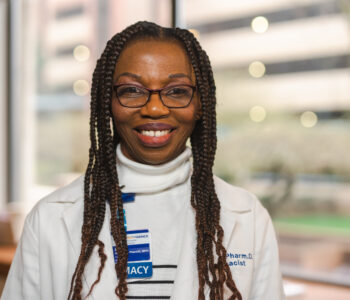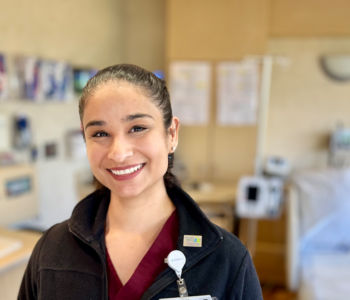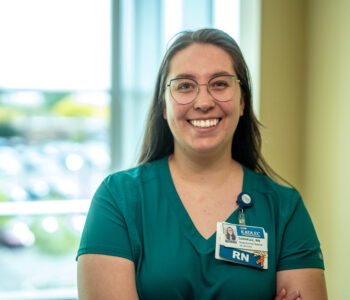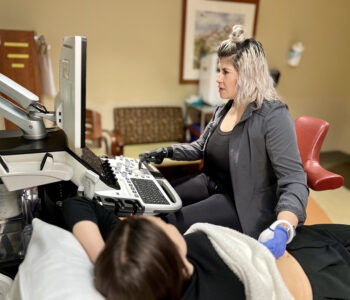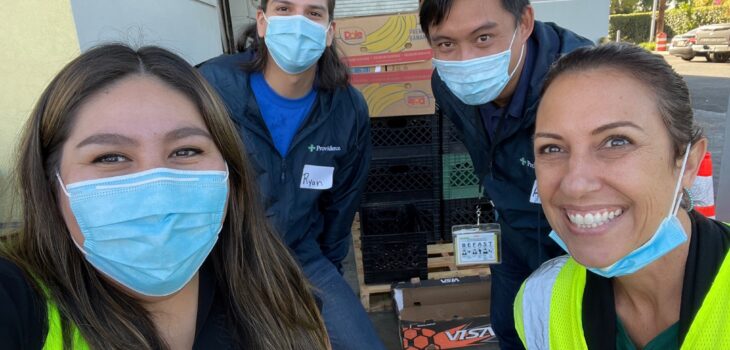 DEI
DEI
Advancing our vision of “health for a better world” with community partnerships
December 13, 2022
If you’re interested in joining an organization that’s truly part of its communities, consider Providence. Community partnerships are a tradition at Providence dating back over a century, when our founders first came west to serve those in need, and today they’re stronger than ever. Caregivers are encouraged to get involved and at the organizational level, we remain committed to domestic and international volunteering and other programs that benefit community health.
Making local and global impact
We have partnerships and opportunities all across our organization to impact community health and well-being. No matter where in the world our partnerships take us, we focus on helping communities improve and thrive.
One experience that’s new to Providence since 2021 is a partnership with the World Telehealth Initiative in Nigeria. Caregivers can cross the globe virtually to spend a few hours a week sharing their knowledge and experience with communities whose access to resources and healthcare are limited. It’s an incredible opportunity to make an impact in another part of the world in just a couple hours of caregivers’ time, and the response we’ve heard from caregivers has been inspiring. There’s a sense of fulfillment from helping others, and a sense of fraternity with the local providers. It’s experience and perspective that caregivers can bring back to their communities.
Closer to home, caregivers have more opportunities to share their healthcare expertise, but they can also engage in grassroots advocacy, giving campaigns and more through our new Action Hub. The Action Hub connects caregivers with a variety of ways to support the health of our communities, including environmental stewardship. We had many caregivers get outside and celebrate Earth Day in 2022. A team of more than thirty caregiver volunteers from Providence Seaside Hospital in Oregon held a clean-up event that netted thirty-three bags of garbage. Volunteers were out cleaning a riverbank in Missoula and clearing invasive plants in the Seattle area.
Removing barriers to wellbeing
We often think first of the physical issues that contribute to health, but studies have shown that social determinants of health, like access to food, shelter and transportation can be vital to wellbeing, and sometimes play an even larger role than medical care or behavioral choices. That’s why Providence has been working across communities to identify these needs and connect people to help.
In Oregon, Providence helped staff Community Resource Desks inside many of its clinics and hospitals, while Impact NW, a nonprofit focused on housing stability, staffs five more in the Portland area. These teams provide people with essential services, such as rental assistance or food stamps, and all are welcome. In Spokane, WA, Providence partnered with CHAS Health to create the Patient Navigator Program which identifies barriers to care for each discharged patient with the goal of keeping down future avoidable emergency room visits.
Providence is also investing in its caregivers directly so that they can have a greater impact on the community. University of Providence has worked closely with Community Health Investment (CHI) and the Catholic Health Association to launch the new Community Health Investment certificate program. This program gives students the opportunity to learn more about community health, health inequities and health data analytics, all with the goal of training leaders in community health, health systems and community organizations. The 16-credit, Master’s level certificate program is geared toward working professionals with an interest in expanding their knowledge and gaining valuable experience in this field. It provides an accessible and affordable option for caregivers to develop their skills and become strategic and ethical leaders for their organizations and in their communities. And caregivers interested in programs like this have access to immediate tuition assistance.
Foundations of health
Providence puts a premium on investing in programs that address basic human and social needs. It’s only when factors such as education, neighborhood, social support networks and employment are met that communities can strive to be at their healthiest. These include programs in the community as well as programs to support caregivers themselves.
In Texas, caregivers have been making an impact through the Community Advocacy Project for Students (CAPS), supported by Covenant Health. Covenant provides both annual funding for the program and free counseling to participating students. Helping young people build support systems around their education not only increases the chance that they will finish high school, but it can have a huge impact on their health. Several Covenant caregivers volunteer in these advocate roles, and they have described the experience as transformative.
Sometimes it’s the caregivers themselves who need to feel supported. The pandemic presented enormous challenges for front-line workers and asked for incredible sacrifice. In Santa Monica, California, Providence Saint John’s Early Childhood Directions program has been a stabilizing force for families who are stretched thin. Here, the teachers and other caregivers provide a hospital-based daycare that’s brimming with light and activity. Programs like this have given caregivers the support they need to manage working full time, as well as to maintain a strong sense of community. It’s invaluable for the young ones, too, as early childhood education programs are shown to have the greatest impact on future health. Having childcare integrated with their workplace can be a huge weight off a caregiver’s shoulders. Knowing that their young ones are not just safe but thriving can give the peace of mind and focus to do what they do best.
If you’d like to work where you’ll be supported as you make a difference in your local and global community, view all jobs.



